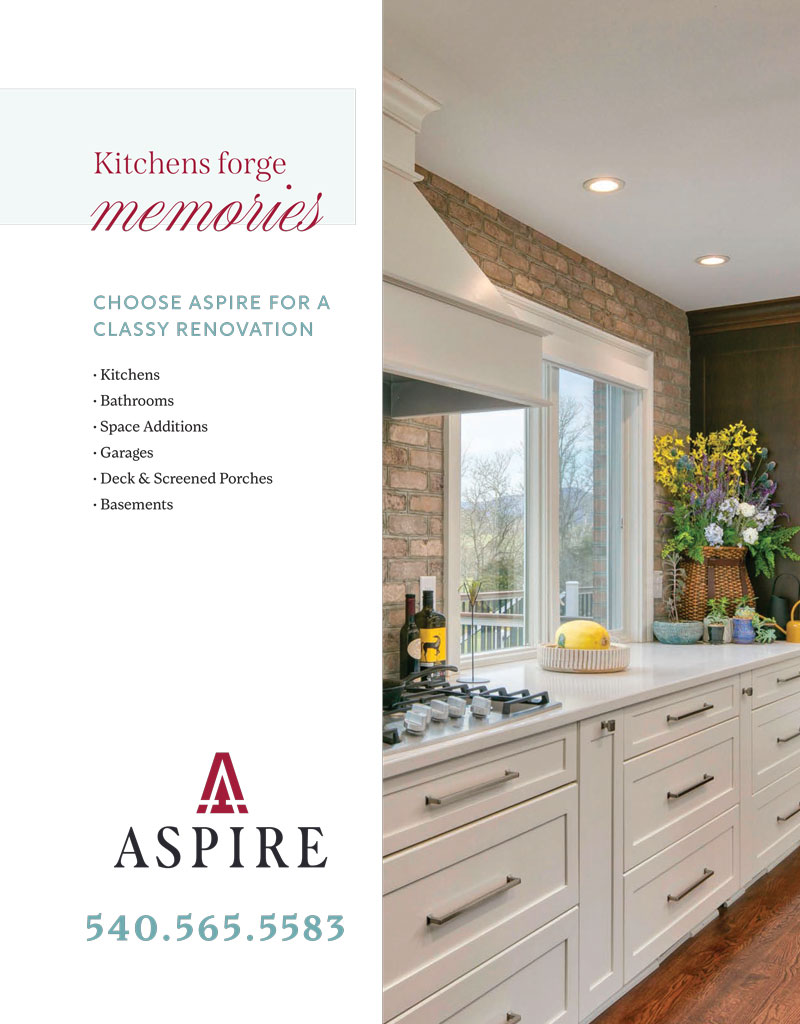IS IT TIME TO DOWNSIZE?
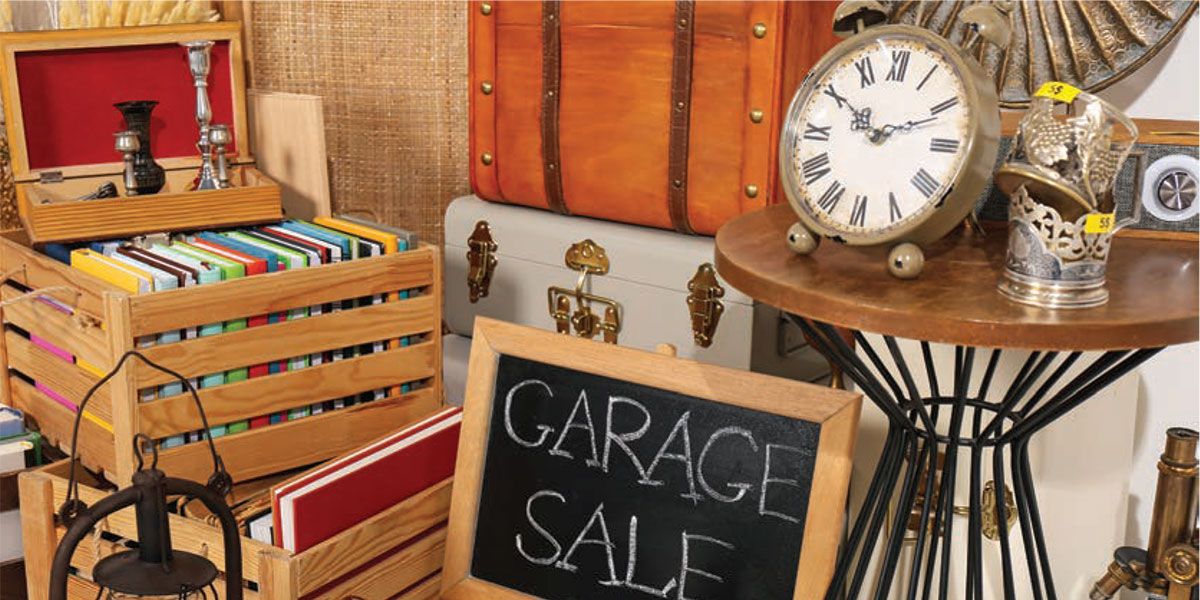
7 frequently asked questions about making the move
 Kay Volman, age 79, knew she needed to make a big life change several years ago when she had surgery on her Achilles tendon and was in a cast for weeks.
Kay Volman, age 79, knew she needed to make a big life change several years ago when she had surgery on her Achilles tendon and was in a cast for weeks.
“My husband had been talking about the idea for a while, and while I was recovering from the surgery, I realized he was right,” Volman says. “It happens. You realize you just can’t do the same things you used to.”
The Volmans faced the fact that they were spending way too much time maintaining their massive, 18th-century home in Maryland, the place they had called home for 42 years.
 They uprooted their life and relocated to a familiar area in the Virginia mountains, choosing to build a smaller cottage that still had plenty of room and a functional layout for visiting children and grandchildren. It also has little to no outdoor maintenance other than optional gardening, which Kay enjoys.
They uprooted their life and relocated to a familiar area in the Virginia mountains, choosing to build a smaller cottage that still had plenty of room and a functional layout for visiting children and grandchildren. It also has little to no outdoor maintenance other than optional gardening, which Kay enjoys.
“This is another season of our life,” she says. “And we are very fortunate because we are still in good health. We did it at the right time, so we are still able to enjoy it.”
The Volmans’ journey is what’s commonly referred to as downsizing. It typically happens later in life, as a person or couple reevaluates their future and what they need from their home.
Downsizing is a big decision, so we asked Scott Avis, a real estate professional with MKB Realtors, to answer some of the top questions he receives from homeowners.
 What are the benefits?
What are the benefits?
Avis says most of his downsizing clients have a lot in common with the Volmans — they are looking for a maintenance-free lifestyle. Downsizing typically comes with reduced square footage, which also means lower energy costs and less space to clean.
But Avis also says a growing number of retirees are downsizing because they want the freedom to travel.
 “They want a smaller, simpler home … everything outside to be taken care of when they are gone,” he says. “They can lock the front door, leave for a month, and not worry about a thing.”
“They want a smaller, simpler home … everything outside to be taken care of when they are gone,” he says. “They can lock the front door, leave for a month, and not worry about a thing.”
Another benefit that’s a little tougher to talk about is how downsizing can typically make things easier for children and grandchildren down the road.
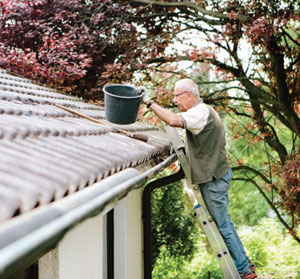 “Downsizing is very helpful for your family because when you die — who cleans out your house? Your kids. If you have already downsized, it makes it half the burden,” he says.
“Downsizing is very helpful for your family because when you die — who cleans out your house? Your kids. If you have already downsized, it makes it half the burden,” he says.
Volman also notes that none of her children wanted to inherit their historic Maryland home. “They would love to inherit the house we have now!” she says.
 What about my stuff?
What about my stuff?
The longer you’ve been in your home, the more challenging it can be. Volman recalls feeling worn out as she cleaned out their home of 42 years.
“It would have been a piece of cake if I was 25,” she laughs. “So time is important. Make sure you either wait to sell your home until after you have sorted through some things or put extra time in your contract.”
Volman had a yard sale for “the junk” and found antiques dealers for a lot of the furniture she had acquired through the years.
Avis advises his clients to start the cleanout process as early as possible — even before you talk to a real estate agent about downsizing.
“I always tell my clients, get rid of or pack up, anything you can now. Because it is going to be a pain when you sell this house and you are up against the wire,” he says.
 Real estate professionals can also assist you with holding an estate sale if you need one.
Real estate professionals can also assist you with holding an estate sale if you need one.
Avis notes that the “stuff” part of the move can sometimes get in the way of the intended goal.
“Forty percent of the time that people call me and want to downsize, they end up buying a bigger house. They get into the process, and they start thinking about their furniture, Grandma’s huge dining table, for example, and don’t want to part with it,” says Avis.
Where should I live?
“Location, location, location” is one of the mantras in the real estate world — and it’s just as important if you are in your golden years.
This is a time in your life where you finally have the time to do the things you enjoy — whether that be volunteer at your church, spend time with grandchildren or take advantage of outdoor opportunities.
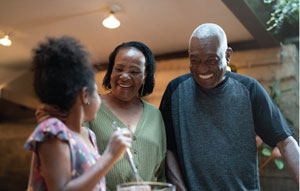 “As people are becoming healthier and living longer, people like to get outside and exercise or walk and you need a place you can do that. And I think you want to consider where family is — do you want the grandkids to be able to walk over to the house?” says Avis.
“As people are becoming healthier and living longer, people like to get outside and exercise or walk and you need a place you can do that. And I think you want to consider where family is — do you want the grandkids to be able to walk over to the house?” says Avis.
You may also want to consider being closer to medical facilities as you age. If you have a specific area you want to be in, you will most likely need to be patient to find what you want.
“Right now, the inventory overall is lower, especially if you are only looking in a certain area,” says Avis.
What should I look for?
While most people think of reduced square footage as the main indication of downsizing, it’s wise to also consider a floor plan that prioritizes what brings enjoyment in life.
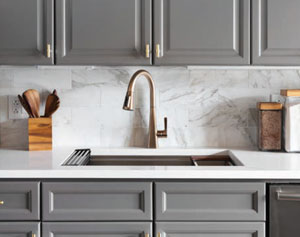 “You’re 65 years old. You’ve had a lot of experiences in life. You know what you want. For example, if you love to cook, you will want to look for a big kitchen.” Avis adds that one-level living is optimal because this is “your one shot of getting a floor plan that will allow you to stay in your home as long as possible.”
“You’re 65 years old. You’ve had a lot of experiences in life. You know what you want. For example, if you love to cook, you will want to look for a big kitchen.” Avis adds that one-level living is optimal because this is “your one shot of getting a floor plan that will allow you to stay in your home as long as possible.”
At minimum, make sure you have a main level primary bedroom. But don’t cut out too much space — you may regret it.
“The concept sounds great for all of us, but then the reality hits us in the face … what am I going to do when I only have this one den and my husband has retired and is here all time?” Avis laughs.
What’s the first step?
Before you start cleaning out your attic or scheduling an estate sale, Avis says it’s important to sit down and discuss your options with a real estate professional.
 “Find out through a good Realtor what is your budget. What is your existing house worth? What do you want to spend on a new house,” he says, adding that homeowners who have their homes paid for are typically in a better position to downsize in the current housing market. It may not make sense to trade a 2 or 3-percent interest rate for a 7-percent interest rate in a smaller home.
“Find out through a good Realtor what is your budget. What is your existing house worth? What do you want to spend on a new house,” he says, adding that homeowners who have their homes paid for are typically in a better position to downsize in the current housing market. It may not make sense to trade a 2 or 3-percent interest rate for a 7-percent interest rate in a smaller home.
Crunch the numbers first and then start to focus on what type of home will fit your lifestyle.
“Research, explore, make sure it’s really what you think it is,” he says. “It is a huge decision; it’s a big change if you do it. But it can certainly be for the better.” ✦
aging parent, Downsizing, estate sale, family ties, floor plans, Location, maintenance, smaller house

